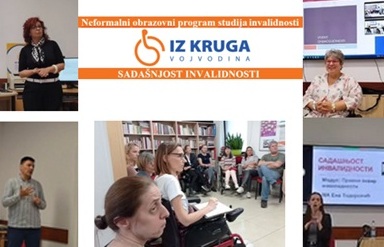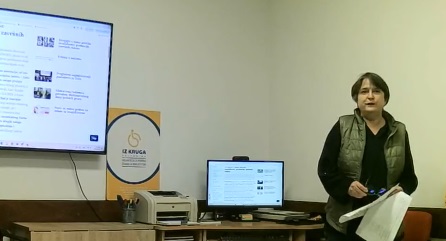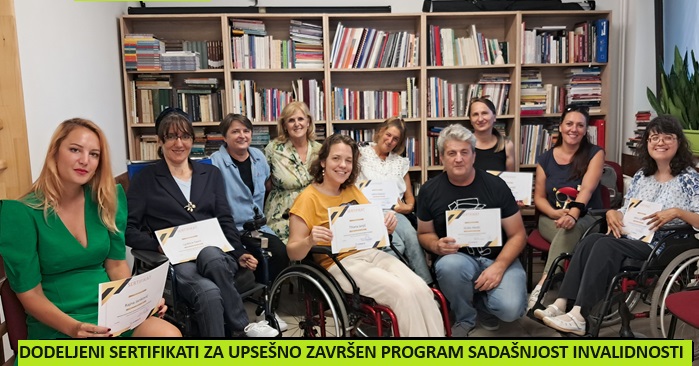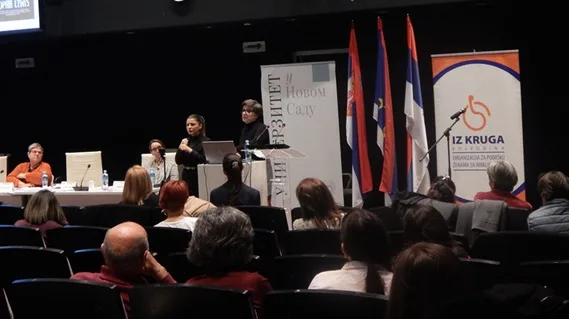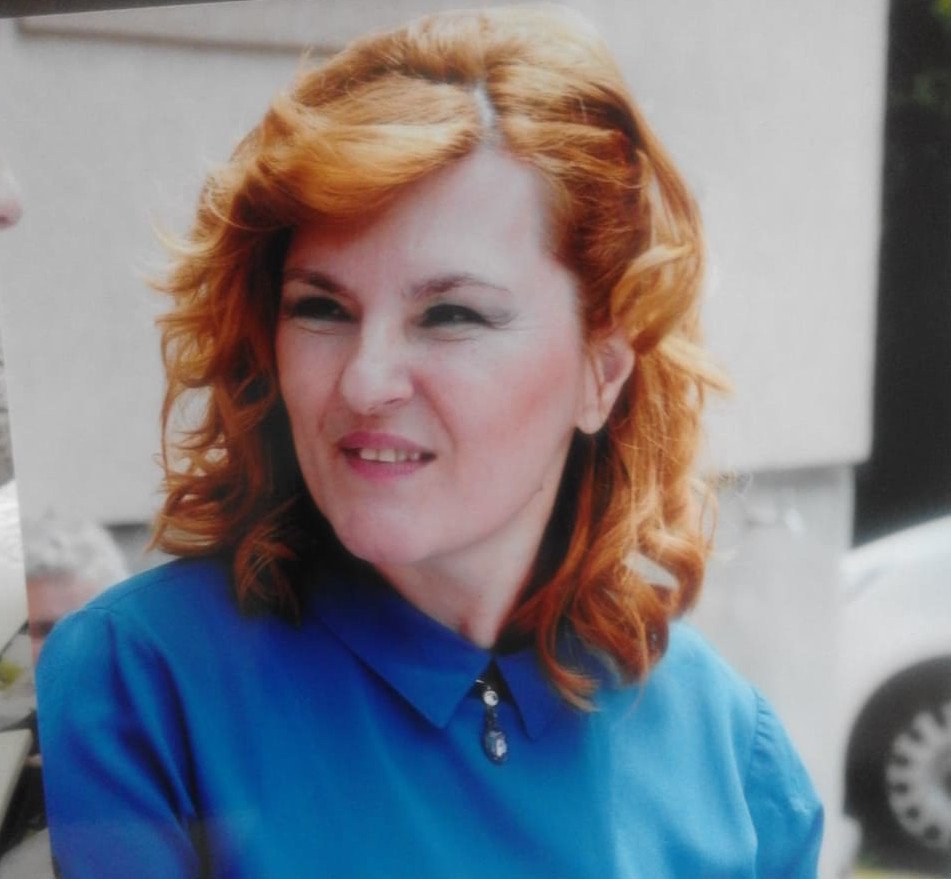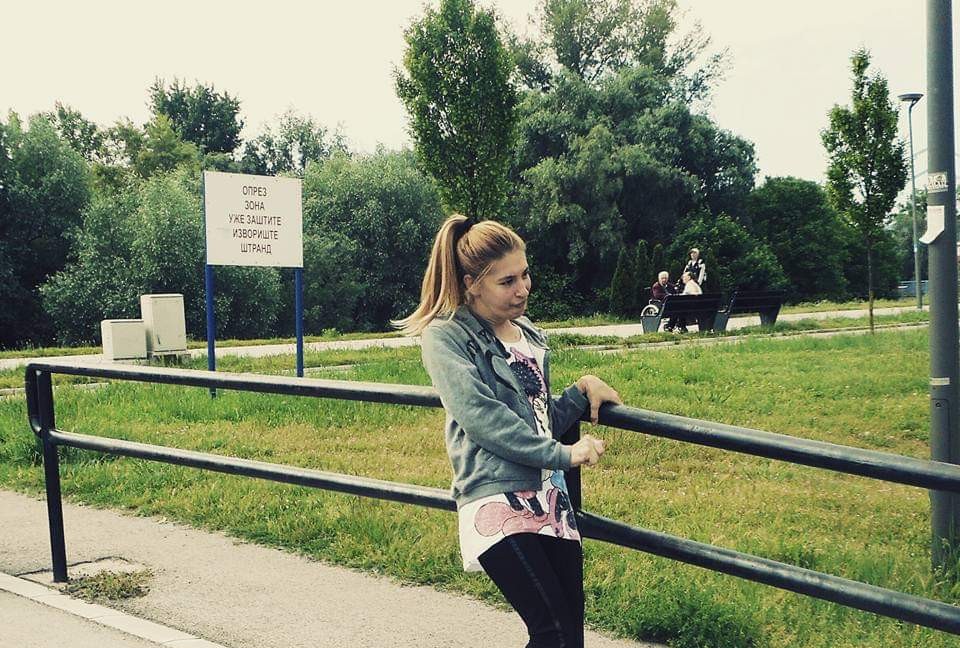We asked women with disabilities what their daily life looks like during the pandemic. What they go through from morning to evening, what activities keep them busy, what do they talk about with themselves or other members of the household, what changed in their daily routine, what are their greatest obstacles under the new circumstances and how do they overcome them, what aspects of their character help them or make it more difficult to cope with the situation, what are their sources of support, is there a good side to what is going on, what new things have they discovered about themselves during the state of emergency, how does isolation affect their relations with others, what makes them angry, are their days in isolation too long or too short, what is the first thing they will do when this is over…? This is how the instant column Quarantine Notes on the Disability Portal came to be. Below are the notes of Dragana Marković, an English teacher, activist for the rights of persons with disabilities and one of the coordinators of the Translators’ Heart group.
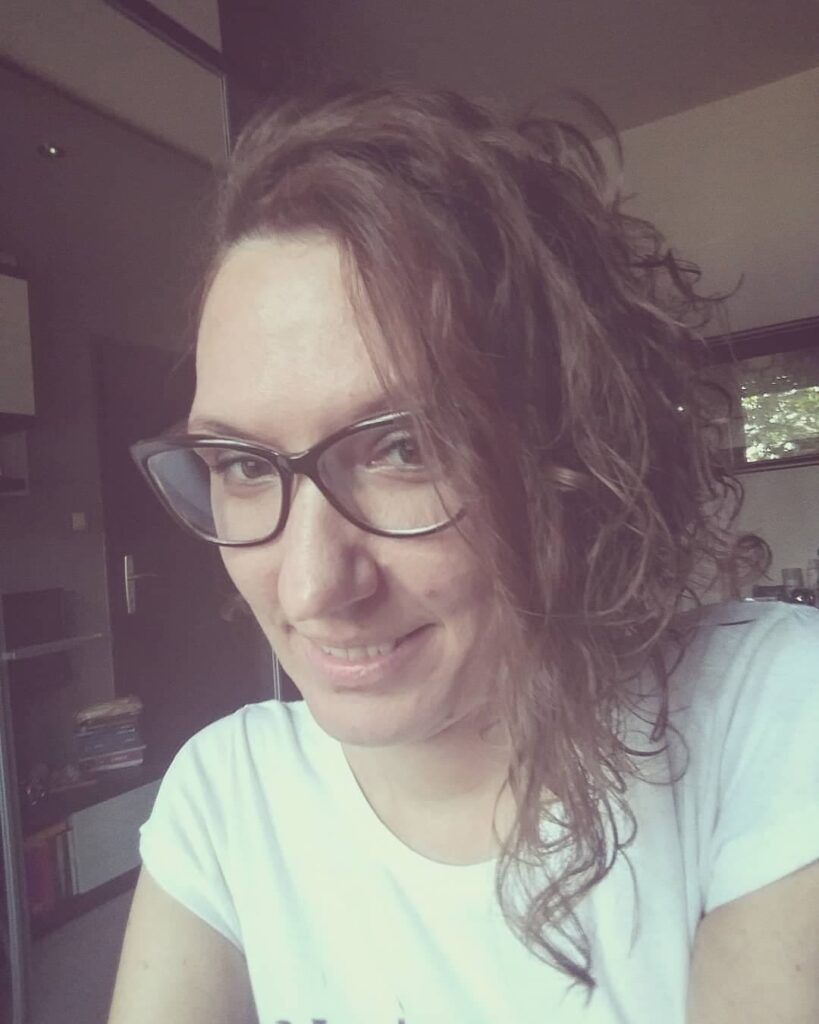
If you’re an online English teacher, your life doesn’t change much during a pandemic and isolation, except that you: don’t go out, you’ve got a bit more work than usual, you don’t have time to follow different culture and art events that are now available online and maybe you’re even a bit jealous of people who complain they have too much free time and not enough ideas about how to spend it. So far, I’ve watched one play and no movies. I find time for books.
Several days ago, I arranged to have two classes with four different people – and these are individual classes. By some miracle, two hours before the classes I realized I had more students and a lack of class time. An old student of mine called me after a two-year pause. She says: – Please, let’s have some classes, I need to do something otherwise I’ll go crazy! Another one says we can have classes every day, at any time. The third tells me her days go by from one English class to the other. In the introductory part of classes, during conversation practice, we talk about the situation in the different countries my pupils are from, about how people behave and react, we learn the current terminology, such as state of emergency, police curfew, isolation…and then we go back to standard teaching activities.
I look out the window during my afternoon classes, in between verbs and adjectives, formal and informal letters, phrasal verbs, and idioms, and see there’s not a soul in the street. It’s the police curfew. I am so angry, yes, angry with the people who are walking in the morning like they’ve never had a walk in their life. I am angry with those that discuss conspiracy theories, our government and justification of introduced measures. Isn’t 1000 deaths in a day in one country reason enough to stay at home? It is for me.
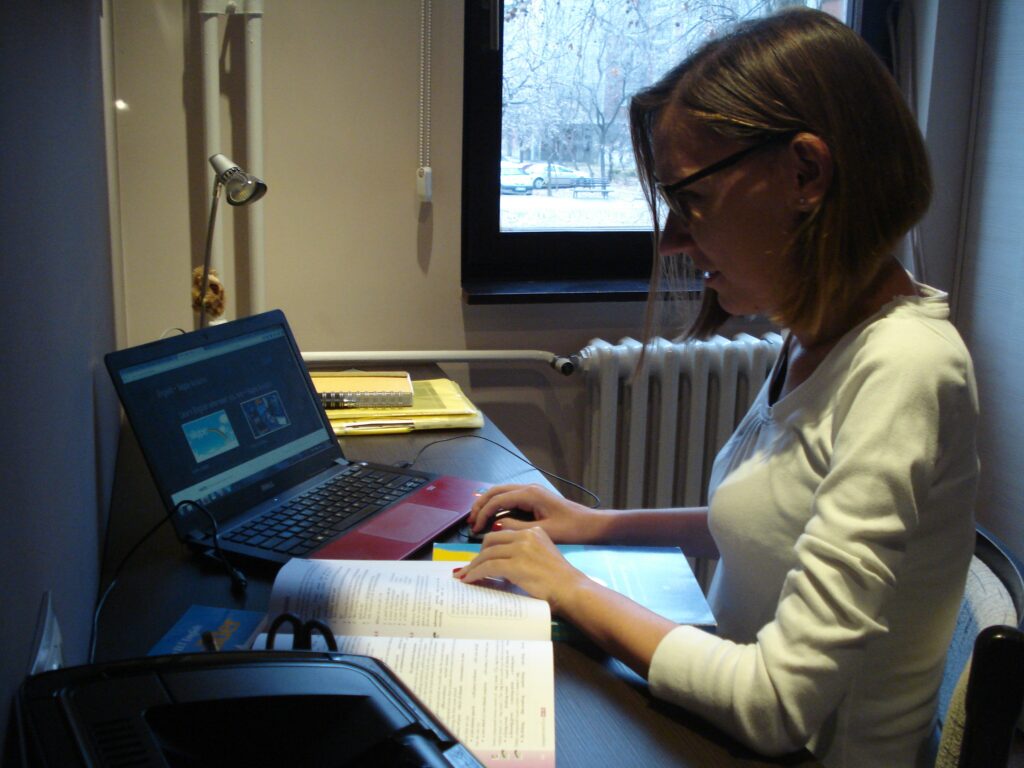
There are those of us that can’t isolate ourselves completely, even if we wanted to. Personal assistants can’t stop coming. Life in the street maybe can stop, but not life at home. Assistants are at risk, and persons with disabilities, as well as their family members. We need to cope with this as best as we can. In addition to this, assistants need to have permits issued for being outside during the police curfew, this is clear, but not even that could be handled smoothly or without unnecessary stress. And no, I am not afraid of the very disease, I am afraid of the situation where I would be completely isolated, and I absolutely cannot function without assistance. I am afraid that someone might need medical help for some reason, and this is not a time to go to the clinic or hospital.
There are days when I am completely calm and rational, positive, careful and solution oriented, recognizing the importance of raising awareness about the entire situation. I am ready to be supportive. And then there are days when panic and madness take over. I get a sore throat and I immediately see myself getting tested, the only thing that comforts me is that one of the so-called covid clinics is right here in my neighborhood. Then I realize I am not the only one and that some other dear people have almost the same outbursts of insanity, so we laugh together. During such days, a Facebook chat nonetheless comes to the rescue, it has existed for years, but during these times its better than gold. Us four coordinators of the Translators’ Heart, with another additional member, are available to each other 24/7 and all the outbursts of insanity or panic attacks can’t do anything to us as long as we have each other. I won’t write about the techniques we apply, but I will say that without them I would’ve packed for the fair a long time ago (that is our code for it’s over, that’s it, it’s time for a break), that without them I wouldn’t know what to do and that I can’t remember the last time I had such fun and laughed so hard. It’s a good thing that crises don’t hit us all at once and not equality intense.
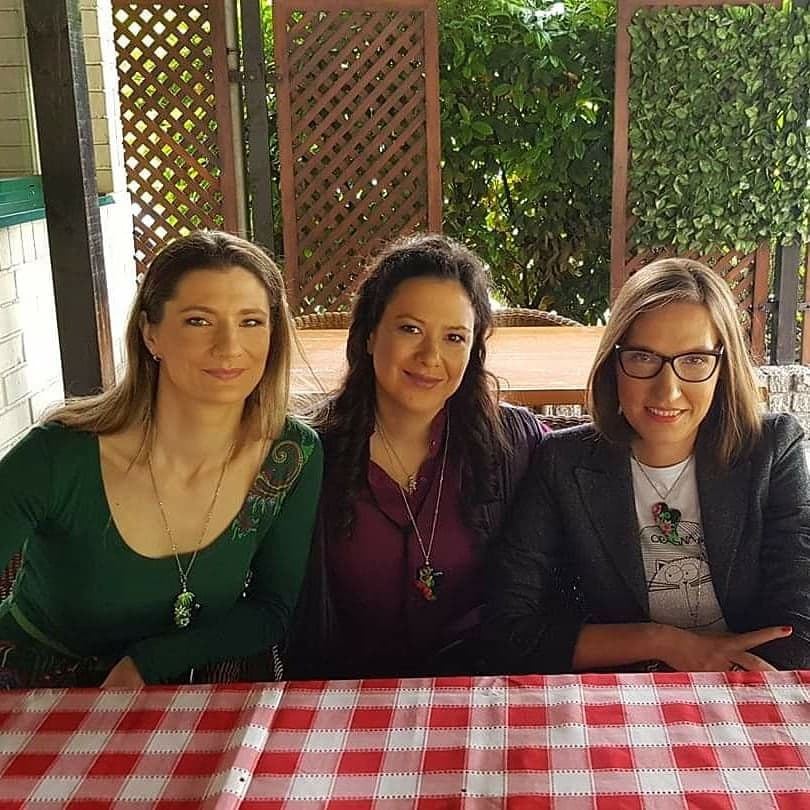
I don’t miss people, people are here. In our time, at least it’s not difficult to be close to someone whose physically distant. Unless the internet’s shut down, like today, for example. Then you’re left with your inner world, which, if you hadn’t built by now, will be difficult to develop. This situation hasn’t taught me anything about myself I hadn’t already known, at least not yet. And I’m not sure I need it to become better. There are those of us who do good things during peaceful times, we change our little microcosms, and then the world. I am not bored at home. I miss nature. I miss the normal way of things, life without being careful and worrying about those more and less close. Still, one encounter can change everything. Now more than ever. And that is why, for the sake of future encounters and memories yet to be made, we should stay at home.
Translated by: Marina Ileš
